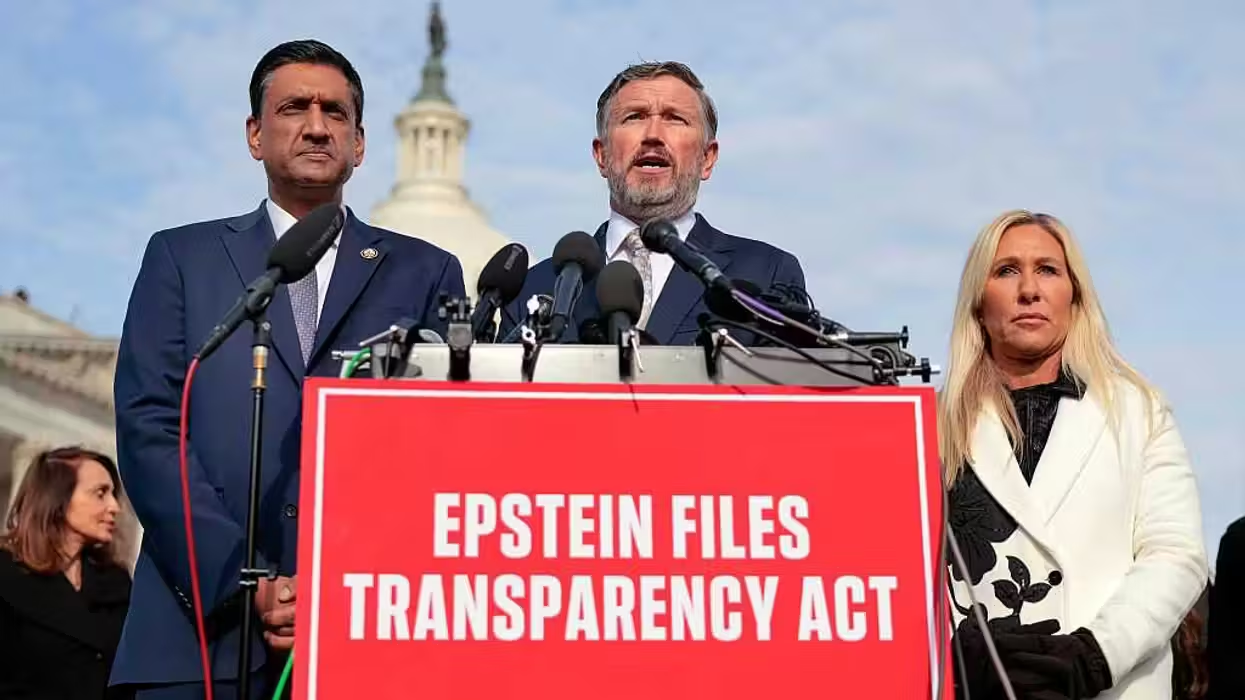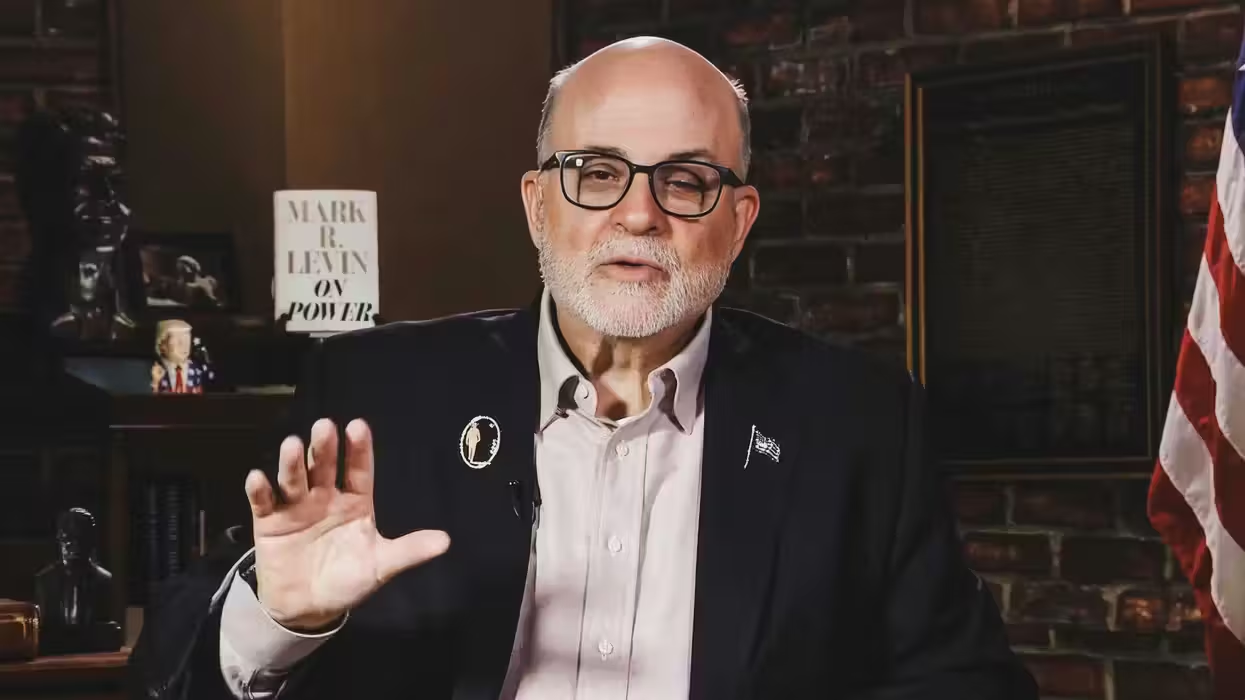© 2025 Blaze Media LLC. All rights reserved.
"We're at the brink."
WASHINGTON (AP) -- Their unity fraying, House Republicans bent but did not blink Monday in their demand for changes in the nation's health care overhaul as the price for preventing the first partial government shutdown in 17 years.
"We're at the brink," said Sen. Barbara Mikulski, D-Md., moments after the Senate voted 54-46 to reject the latest GOP attempt to tie government financing to delays in "Obamacare."
The stock market dropped on fears that political gridlock between the White House and a tea party-heavy Republican party would prevail.
As lawmakers squabbled, President Barack Obama urged them to "act responsibly and do what's right for the American people." At the White House, he said he was willing to discuss long-term budget issues with members of Congress, and expected to do soon. But, he added, "The only way to do that is for everybody to sit down in good faith without threatening to harm women and veterans and children with a government shutdown."
In a fast-paced series of events, the Senate voted 54-46 to reject a House-passed measure that would have kept the government open while delaying implementation of the health care law for a year and permanently repealing a medical device tax that helps finance it.
House Republicans, reacting swiftly, decided to try again. Their new proposal was to allow the government to remain open, while imposing a one-year delay in a requirement in the health care law for individuals to purchase coverage or face a financial penalty. Their measure also would require members of Congress to bear the full cost of their own coverage by barring the government from making the customary employer contribution.
"This is a matter of funding the government and providing fairness to the American people," said Speaker John Boehner. "Why wouldn't members of Congress vote for it?"
Asked if a stand-alone spending bill was still possible instead, he said, "That's not going to happen."
Democrats said the House GOP measure was doomed in the Senate, and would meet the same fate as every other attempt to delay the law that passed in 2010 and was upheld by the Supreme Court.
A shutdown would cause an uneven impact across the face of government, sending hundreds of thousands of workers home and inconveniencing millions of Americans who rely on government services or are drawn to the nation's parks and other attractions.
Many low-to-moderate-income borrowers and first-time homebuyers seeking government-backed mortgages could face delays.
About 800,000 federal workers, many already reeling from the effect of automatic budget cuts, would be ordered to report to work Tuesday for about four hours - but only to carry out shutdown-related chores such as changing office voicemail messages and completing time cards. Once they departed, they would be under orders not to do any government work.
With less financial impact but important to many viewers, a camera that feeds images of a new-born panda at the National Zoo would be shut down.
Some critical services such as patrolling the borders, inspecting meat and controlling air traffic would continue. Social Security benefits would be sent, and the Medicare and Medicaid health care programs for the elderly and poor would continue to pay doctors and hospitals.
Ironically, the issue at the core of the dispute, implementation of key parts of "Obamacare," will begin Tuesday on schedule, shutdown or no.
Among Republicans, some said the revised legislation did not go far enough in seeking to delay a law that all members of the party oppose and want to see eradicated.
Rep. Phil Gingrey of Georgia said it felt as if Republicans were retreating, and Rep. Scott Rigell of Virginia said there was not unanimity when the rank and file met to discuss a next move.
For the first time since the showdown began more than a week ago, there was also public dissent from the Republican strategy that has been carried out at the insistence of tea party-aligned lawmakers working in tandem with GOP Sen. Ted Cruz of Texas.
Rep. Charles Dent, R-Pa., said he was willing to vote for stand-alone legislation that would keep the government running and contained no health care-related provisions. "I would be supportive of it, and I believe the votes are there in the House to pass it at that point," the fifth-term congressman said.
Dent added he has been urging the Republican leadership to allow a vote along those lines.
A second Republican, Rep. Doug Lamborn of Colorado, said, "We haven't given up on Obamacare ... but for this week we may have to give up. We tried everything and Harry Reid won't budge," he said of the Senate majority leader.
Other Republicans sought to blame Democrats for any shutdown, but Dent conceded that Republicans would bear the blame, whether or not they deserved it.
The last time the government shutdown, in 1996, Republicans suffered significant political damage, and then-President Bill Clinton's political fortunes were revived in the process.
Now, as then, Republicans control the House, and senior lawmakers insist even a shutdown isn't likely to threaten their majority in the 2014 elections. "We may even gain seats," Oregon Rep. Greg Walden, who chairs the party campaign committee, said recently.
For all the controversy about other matters, the legislation in question is a spending bill - and there was little if any disagreement about the spending-related issues.
The House and Senate have agreed to fix spending for a wide swath of federal programs at an annual level of $986 billion.
Without separate legislation to make further reductions, across-the-board cuts would automatically take effect early next year that would reduce the level to $967 billion.
–
[related]
Want to leave a tip?
We answer to you. Help keep our content free of advertisers and big tech censorship by leaving a tip today.
Want to join the conversation?
Already a subscriber?
more stories
Sign up for the Blaze newsletter
By signing up, you agree to our Privacy Policy and Terms of Use, and agree to receive content that may sometimes include advertisements. You may opt out at any time.
Related Content
© 2025 Blaze Media LLC. All rights reserved.
Get the stories that matter most delivered directly to your inbox.
By signing up, you agree to our Privacy Policy and Terms of Use, and agree to receive content that may sometimes include advertisements. You may opt out at any time.






